Doctorate vs. PhD: Understanding the Key Differences [2024]
If you’re interested in pursuing a doctoral degree, you may wonder about the differences between a doctorate vs. PhD.

A doctorate and a PhD are both terminal degrees that allow you to develop specialized knowledge and skills in your chosen field. But these degrees typically have different areas of focus, requirements, and career outcomes.
Editorial Listing ShortCode:
Understanding the difference between PhD and doctorate can help you pick the degree that most aligns with your career aspirations and interests.

What’s the Difference Between Doctorate vs. PhD Degrees?

A doctorate and a Ph.D. are the highest college degrees students can earn. Graduates of both types of programs receive the title of “doctor” and may qualify for specialized careers in their fields.
But, while doctorate programs focus on professional competencies and knowledge, PhD programs prioritize academic research.
What Is a Doctorate Degree?

A doctorate degree is a professional degree that enables students to become experts in a specific field or industry. This degree focuses on applying academic research and theories in the workplace to improve performance and solve problems.
Courses vary by field and program but typically emphasize professional skills like collaboration, leadership, and project management. Additionally, many doctorate programs require students to complete a capstone project that addresses real issues affecting their industry.
Graduates often qualify for advanced administrative, leadership, and managerial positions in their fields.
What Is a PhD Degree?

A Doctor of Philosophy (PhD) degree is an opportunity to strengthen your academic research skills and generate original knowledge. This degree trains students to become independent scholars who conduct cutting-edge research in their areas of expertise.
PhD curriculums cover advanced concepts and theories in a discipline. They also teach students qualitative and quantitative methodologies to design studies and conduct research. Additionally, most PhD programs require students to produce a dissertation that contributes fresh knowledge to the field.
Current professionals with PhDs often work as academic researchers and professors. They may also secure government and industry jobs.
Key Differences Between a PhD vs. Doctorate Degree
What’s a PhD degree ? What’s a doctorate degree? The main difference between a doctorate and a PhD is their area of focus. A doctorate prioritizes applied knowledge and professional skills, while a PhD emphasizes academic research. Let’s compare some more differences between a professional doctoral degree vs. PhD.

A doctorate enables students to become expert practitioners in their discipline. Students study existing concepts and theories and learn how to apply these ideas in the workplace.
By contrast, a PhD prepares students to conduct innovative research and educate others.
Goals and Outcomes

Doctorate programs help prepare students for senior administrative and leadership positions in their industries. They also help students enhance their professional competencies and tackle industry-specific challenges.
Students who pursue PhDs aim to advance their disciplines by generating new knowledge. They may also publish peer-reviewed research and teach undergraduate courses.
Student Population

Doctorate degrees are designed for current or aspiring working professionals who want to become industry leaders. These programs also enable students to increase their knowledge and credibility.
PhD programs attract students who want to expand their knowledge of research methodologies and theories. These learners also frequently pursue academic careers.
Admissions Requirements

Doctorate and PhD programs typically require students to have bachelor’s and master’s degrees.
Additionally, prospective doctorate students may be asked to provide evidence of work experience, while PhD students might demonstrate their research abilities with a writing sample.
Program Length

Requirements vary by program, but full-time students typically complete a doctorate in 3 to 5 years. Programs that require a capstone project may take longer. For those considering quick degrees, a number of universities now offer accelerated doctoral programs online .
PhD programs often take 4 to 7 years to finish. The speed at which students research and write their dissertations can significantly impact the timeline.

The curriculum for doctorate programs typically centers on practical skills and contemporary issues in the field. Topics may include communication, ethics, and leadership.
PhD programs offer classes on research methods, theories, and disciplinary trends. Students also learn how to write journal articles and present at conferences.
Assessment and Completion Requirements

Doctorate and PhD students both complete 2 or more years of coursework. They also demonstrate their knowledge during comprehensive exams.
Doctorate students may produce a capstone project that applies their knowledge to real problems. By contrast, PhD students write dissertations based on original research.
If You Have a PhD, Are You a Doctor?

Is a PhD a doctor ? While graduates who earn a PhD are referred to as doctors, a PhD is different from a Doctor of Medicine (MD).
Doctors with MDs are medical doctors who can legally prescribe medications, perform surgery, and treat patients. They typically apply existing medical knowledge instead of conducting research. Doctors with PhDs don’t have any of these abilities. Instead, they have specialized knowledge and perform academic research in a particular field.
PhD or Doctorate Degree – Which Is Right for You?

Understanding the difference between a doctorate and a PhD can help you select the right degree for you.
Professional doctorate degrees help students become leading practitioners and problem solvers. By contrast, PhD degrees enable students to hone their research skills and learn advanced concepts. Both degrees allow you to enrich your understanding of your chosen discipline or profession. They also help you boost your credentials and develop new skills.
After you decide between a doctorate degree vs. PhD, you can explore program options from accredited schools to find the best fit.

What is a Postdoc?
Most people outside of academia know what a PhD is, but a postdoc is more confusing. Are postdocs students? Do they actually earn a degree? Are they called postdoctoral researchers or fellows or scholars or associates or assistants? Let’s clear up some of that confusion.
So, What is a Postdoc?
In many fields, a postdoc is the de facto next step on the academic career path after earning a PhD (hence the name.) A postdoc is a temporary position that allows a PhD to continue their training as a researcher and gain skills and experience that will prepare them for their academic career. Most postdoc positions are at a university or in industry, but there some postdocs positions at nonprofits and in government. While the vast majority of postdocs work in STEM fields, these types of positions are becoming more common in social sciences and the humanities.
What Does a Postdoc Do?
A postdoc is primarily a researcher who works under the supervision of a mentor as part of a larger research group. As such, they conduct research, either on a pre-specified project or one of their own design and publish that research. At the same time, a postdoc is meant to prepare young researchers to become principal investigators or junior faculty members, so they also take on senior responsibilities like mentoring, grant writing, and teaching.
How Long Are Postdoc Positions?
There is no set length for a postdoc. It will depend on a number of factors such as the university, country of research, PI, or funding. That being said, most positions are two to three years and some can be extended. It is common to do more than one postdoc before applying for faculty positions. Some countries do limit the total number of years a person can work as a postdoc. For example, in Canada and Sweden, it is only possible to be a postdoc for five years total, while there is no limit on postdoc years in the US.
How Are Postdocs Funded?
Postdoc positions can be funded in several ways. Some postdocs are salaried employees of a university, institution, or company. Other times they are paid a stipend from a grant, fellowship, or scholarship. In some countries, the name of the position indicates the funding source. In the UK for example, a postdoctoral assistant works on a project developed for and funded by a grant awarded to the PI, while a postdoctoral fellow is awarded their own fellowship giving them a larger say in the scope of their project.
Find hundreds of available postdoc positions on Academic Positions.
Discover related jobs
Discover similar employers
Accelerate your academic career
10 Questions to Ask During a Postdoc Interview
Not sure what to ask during your postdoc interview? Make sure you get th...
French Academic Job Titles Explained
What's the difference between a professeur des universités and a maître ...
6 Tips to Get the Most Out of a Conference
How do you make sure you really take advantage of all that a conference ...
The Academic Career Path in Austria
What's the difference between a universitätsassistent and a lektor? Here...
Moving to Belgium to Research or Study
Belgium is a great place to work and study. Here are some practical thin...
PhD, Postdoc, and Professor Salaries in the Netherlands
Interested in working in the Netherlands? Here's how much PhD students, ...
Jobs by field
- Machine Learning 158
- Electrical Engineering 158
- Artificial Intelligence 150
- Programming Languages 138
- Molecular Biology 127
- Mechanical Engineering 118
- Cell Biology 115
- Materials Engineering 104
- Materials Chemistry 103
- Electronics 97
Jobs by type
- Postdoc 336
- Assistant / Associate Professor 146
- Researcher 121
- Professor 107
- Research assistant 91
- Lecturer / Senior Lecturer 72
- Engineer 65
- Management / Leadership 51
- Tenure Track 42
Jobs by country
- Belgium 276
- Netherlands 164
- Morocco 116
- Switzerland 114
- Luxembourg 58
Jobs by employer
- KU Leuven 117
- Mohammed VI Polytechnic Unive... 116
- KTH Royal Institute of Techno... 69
- Ghent University 61
- ETH Zürich 59
- University of Luxembourg 56
- University of Twente 46
- Eindhoven University of Techn... 44
- Karolinska Institutet 32
This website uses cookies

What is a PhD?
- Types of Doctorates
- A Doctor of Philosophy (PhD) is the highest globally recognized postgraduate degree that higher education institutions can award.
- PhDs are awarded to candidates who undertake original and extensive research in a particular field of study.
- Full time PhD programmes typically last three to four years, whilst part time PhD programmes typically last six to seven years.
- A PhD can lead to an academia teaching role or a career in research. A PhD can also equip you with skills suitable for a wide range of jobs unrelated to your research topic or academia.
Definition of a PhD – A Doctor of Philosophy (commonly abbreviated to PhD , Ph.D or a DPhil ) is a university research degree awarded from across a broad range of academic disciplines; in most countries, it is a terminal degree, i.e. the highest academic degree possible.
PhDs differ from undergraduate and master’s degrees in that PhDs are entirely research-based rather than involving taught modules (although doctoral training centres (DTCs) offer programmes that start with a year of lecture-based teaching to help develop your research skills prior to starting your project).
In most English-speaking countries, those that complete a PhD use the title “Doctor” (typically abbreviated to Dr) in front of their names and are referred to as such within academic and/or research settings. Those that work in fields outside of academia may decide not to use the formal doctor title but use post-nominal letters (e.g. John Smith PhD); it’s unusual though for someone to use both the Doctor title and post-nominal letters in their name.
PhD vs Doctorate
A PhD and a professional doctorate are both research-based terminal degrees.
However, where a PhD focuses on original research mostly around theoretical concepts, a professional doctorate focuses on examining existing knowledge to solve real-life, practical problems.
While there is much crossover between the two, a PhD is generally better suited for an individual to wants to advance the knowledge and understanding in their field, and a professional doctorate degree is better suited to a working professional who wants to better be able to apply knowledge and understanding to their field.
What Are the Entry Requirements for a PhD?
To be accepted on to a PhD programme, students usually need to hold at least a high ( 2:1 and above ) undergraduate degree that is related to the field of research that they want to pursue. A PhD candidate may also be expected to hold a Master’s degree , however, this does not mean you must have one, as it is still possible to enrol into a PhD without a Master’s .
Self-funded courses may sometimes be more relaxed in relation to entry requirements. It may be possible to be accepted onto a self-funded PhD programme with lower grades, though these students typically demonstrate their suitability for the role through professional work experience.
Whilst a distance learning project is possible , most PhD candidates will carry out their research over at least three years based at their university, with regular contact with two academic supervisors (primary and secondary). This is particularly the case for lab-based projects, however, some PhD projects require spending time on-site away from university (e.g. at a specialist research lab or at a collaborating institution abroad).
How Long Does a PhD Take?
Typically, full-time PhDs last 3-4 years and part-time PhDs last 6-7 years. However, at the discretion of the university, the thesis writing-up period can be extended by up to four years.
Although most doctoral programmes start in September or October, they are generally much more flexible than taught-courses and can start at any time of the year.
How Much Does a PhD Cost?
Tuition fees for UK and EU students vary between £3,000 and £6,000 per year, with the average tuition fee of £4,712 per year for 2023/24 programmes.
Tuition fees increase considerably for international students, varying between £16,000 to £25,000 per year, with an average tuition fee of £19,600 per year .
Nonetheless, most students will secure PhD funding in the form of studentships, scholarships and bursaries to help pay for these fees. These funding opportunities can either be partial, which cover tuition fees only, or full, which cover both tuition fees and living expenses.
UK national students can also apply for Doctoral Loans from Student Finance England if they are unable to secure funding.
Finding a PhD has never been this easy – search for a PhD by keyword, location or academic area of interest.
What Does a PhD Involve?
To be awarded a PhD, a doctoral student is required to produce a substantial body of work that adds new knowledge to their chosen field.
A PhD programme will typically involve four key stages:
Stage 1: Literature Review
The first year of a PhD involves attending regular meetings with your supervisors and carrying out a search on previously published work in your subject area. This search will be used to produce a literature review which should set the context of the project by explaining the foundation of what is currently known within the field of research, what recent developments have occurred, and where the gaps in knowledge are. In most cases, this will be an extension of your research proposal should you have produced one as part of your application. The literature review should conclude by outlining the overarching aims and objectives of the research project. This stage of setting achievable goals which are original and contribute to the field of research is an essential first step in a successful PhD.
The supervisor is the main point of contact through the duration of a PhD – but remember: they are there to mentor, not to teach, or do it for you . It will be your responsibility to plan, execute and monitor your own work as well as to identify gaps in your own knowledge and address them.
Stage 2: Research
The second year (and prehapse some of your third year) is when you work on your research. Having identified novel research questions from your review of the literature, this is where you collect your data to help answer these questions. How you do this will depend on the nature of your doctoral research: for example, you may design and run experiments in a lab alongside other PhD students or visit excavation sites in remote regions of the world. You should check in regularly with your supervisors to update them and run any ideas or issues past them.
Have the structure and chapters of your thesis in mind as you develop and tackle your research questions. Working with a view of publishing your work will be very valuable later on.
Stage 3: Write up of Thesis
The next key stage of a PhD is writing a doctoral thesis , which typically takes from anywhere between three months to one year. A thesis is a substantial body of work that describes the work and outcomes of the research over the previous two to three years. It should tell a detailed story of the PhD project – focusing on:
- The motivations for the research questions identified from the literature review.
- The methodologies used, results obtained, and a comprehensive analysis and discussion of the findings.
- A detailed discussion of the key findings with an emphasis on the original contributions made to your field of research and how this has been impactful.
There is no universal rule for the length of a PhD thesis, but general guidelines set the word count between 80,000 to 100,000 words.
For your thesis to be successful, it needs to adequately defend your argument and provide a unique or increased insight into your field that was not previously available.
Stage 4: Attending the Viva
A viva voce , most commonly referred to as just a ‘ viva ‘, is an interview-style examination where the PhD student is required to engage in a critical appraisal of their work and defend their thesis against at least two examiners. The examiners will ask questions to check the PhD student has an in-depth understanding of the ideas and theories proposed in their thesis, and whether they have developed the research skills that would be expected of them.
The viva is one of the final steps in achieving a PhD, and typically lasts at least two hours, but this duration can vary depending on the examiners, the university and the PhD project itself.
Once you have done the viva – you’re on the home stretch. You will typically be asked to make some amendments to your thesis based on the examiner’s feedback. You are then ready to submit your final thesis for either:
- PhD – If you pass the requirements you will be awarded a PhD degree (most common outcome),
- MPhil – If you failed to meet requirements for a PhD, you may be downgraded to an MPhil degree (uncommon outcome),
- Fail – No award is given, typically for cases of plagiarism (extremely uncommon outcome).
What Is It Like to Undertake a PhD?
We’re often asked what it is like to undertake a PhD study. Unfortunately, this isn’t a simple answer to this question as every research project is different.
To help give insight into the life of a PhD student, we’ve interviewed PhD students at various stages of their programmes and put together a series of PhD Student Interviews . Check out the link to find out what a PhD is like and what advice they have to offer you.
What Are the Benefits of A PhD?
A PhD is the highest globally recognised postgraduate degree that higher education institutions can award. The degree, which is awarded to candidates who demonstrate original and independent research in a particular field of study, is not only invaluable in itself, but sets you up with invaluable skills and traits.
Career Opportunities
First, a PhD prepares you for a career in academia if you wish to continue in this area. This takes form as a career in the Higher Education sector, typically as a lecturer working their way to becoming a professor leading research on the subject you’ve studied and trained in.
Second, a PhD also enables the opportunity for landing a job in a research & development role outside of the academic environment. Examples of this include laboratory work for a private or third sector company, a governmental role and research for commercial and industrial applications.
Transferable Skills
Finally, in possessing a PhD degree, you can show to employers that you have vital skills that make you an asset to any company. Three examples of the transferable skills that you gain through a PhD are effective communication, time management, and report writing.
- Communication – presenting your work in written and oral forms using journal papers and podium presentations, shows your ability to share complex ideas effectively and to those with less background knowledge than you. Communication is key in the professional environment, regardless of the job.
- Time management – The ability to prioritise and organise tasks is a tremendous asset in the professional industry. A PhD holder can use their qualification to demonstrate that they are able to manage their time, arrange and follow a plan, and stick to deadlines.
- Report writing – Condensing three years of work into a thesis demonstrates your ability to filter through massive amounts of information, identify the key points, and get these points across to the reader. The ability to ‘cut out the waffle’ or ‘get to the point’ is a huge asset in the professional industry.
Aside from the above, you also get to refer to yourself as a Doctor and add fancy initials after your name!
What Can I Do After a PhD?
One of the most desirable postdoctoral fields is working within independent Research and Development (R&D) labs and new emerging companies. Both industries, especially R&D labs, have dedicated groups of PhD graduates who lead research activities, design new products and take part in crucial strategic meetings. Not only is this a stimulating line of work, but the average salaries in R&D labs and emerging start-ups are lucrative. In comparison, an undergraduate with five years of experience within their given field will, on average, likely earn less than a new PhD graduate taking on a R&D position.
It’s a common misunderstanding that PhDs only opens the door for an academic career such as university lecturers and training providers. Although obtaining a PhD opens these doors, the opportunities extend far beyond educational roles. In fact, recent data from the UK’s Higher Education Statistics Agency (HESA) indicates only 23% of PhD graduates take a position in educational roles . This low percentage is primarily because PhD graduates have a wide range of skills that make them suitable for a broad spectrum of roles. This is being seen first hand by the increasing number of PhD graduates who are entering alternative roles such as research, writing, law and investment banking.
How Do I Find a PhD?
We appreciate that finding a PhD programme to undertake can be a relatively daunting process. According to Higher Education Student Statistics , over 22,000 PhDs were awarded in 2016/17 within the United Kingdom alone. Clearly there are a huge number of PhD programmes available. This can sometimes be confusing for prospective doctorates, particularly when different programmes are advertised in different places. Often, it is difficult to know where to look or where to even start. We’ve put together a list of useful sources to find the latest PhD programmes:
- A great place to start is with our comprehensive and up-to-date database of available PhD positions .
- Assuming you are still at university, speak to an existing PhD supervisor within your department.
- Attend as many postgraduate open days as you can. Whilst there, speak to current PhD students and career advisors to get an awareness of what PhDs are on offer.
- Visit the postgraduate section of university websites and the PhD Research Council section of the UKRI website.
Browse PhDs Now
Join thousands of students.
Join thousands of other students and stay up to date with the latest PhD programmes, funding opportunities and advice.

- October 11, 2023
- Education Advice
Ph.D. vs. Doctorate: What are the Differences?
UOTP Marketing

For those who have a deep-seated attitude, pursuing a doctoral degree can be a tough yet beneficial journey. Currently enrolled in a doctorate program means that a person has already scooched over college admissions, went through high stake tests and exams, and finished all those research papers and long hours spent in university libraries hitting the books. While studying for a doctorate entails asserting oneself to an extensive amount of quality time and money , its significance and purpose usually pave the way to a lucrative end.
After having finished the Master’s Degree , students begin to think about their next step in their academic career. Then, paradoxically, while navigating through academia, they find themselves baffled by the immense terms and terminologies used to label specific degrees. Because the terms “Doctorate” and “Ph.D.” are somehow interlocked and overlap, and because “PhD” is sometimes used inconsistently, it can lead to considerable confusion. Ph.D. vs. Doctorate? You might wonder what their difference is, and why they are important. E xplaining what each of these terms stands for, the difference between them, and why they are valuable, can help you steer yourself down the right path from the outset.
Doctorate Degree vs. Ph.D.

At first glance, it is pretty easy to confuse these two terms. But it is important for everyone to be able to make a distinction between the two. In this article, we will discuss the difference between Ph.D. and Doctorate in detail in order to get rid of any confusion you may have. In the academic world, the terms Doctorate and Ph.D. are currently used interchangeably. Both of them are the top cap of the ladder. However, a doctorate is mostly used as an umbrella term covering many fields ranging from professional degrees, humanities, and scientific disciplines.
A Ph.D. or Doctor of Philosophy, on the other hand, is a subcategory of a doctoral degree, it is much more distinct and clear-cut and is usually narrower in nature encompassing only humanities and scientific fields. In plain English, when someone says they are enrolling on a doctoral degree, it means they are doing a Ph.D. in a specific field. So, technically, in common parlance, there is no difference between the two terms.
But at the other end of the spectrum, one should be careful not to confuse a professional doctoral degree with a Ph.D. The former is more practical and is designed to prepare students to apply existing knowledge to find solutions to real-life problems and has a direct application to a particular profession.
A Ph.D. is theoretical by nature and is more academic and research-focused. it is often fixed on disseminating knowledge by conducting authentic research which means reviewing and identifying gaps in current literature and evaluating the relevance of existing and emerging theories within a particular field.
What Is a Ph.D. Degree and Why Should You Go for It?
Students who acquire a Ph.D. are justly proud — they wear it as a badge of identity in the academic elite. Traditionally, a Ph.D. was associated with teaching, which from Latin licentia docendi meant “license to teach”. However, the concept of Ph.D. has been on shifting sands nowadays and has become a more general term that isn’t necessarily confined to teaching only.
The Value of a PhD

Obtaining a Ph.D. helps you capitalize on the emerging academic opportunities making you more easily identifiable to employers or businesses seeking to fill professional, higher-level job positions. Many of these career options, conversely, are not available to those who do not belong to the Ph.D. club. While pursuing a Ph.D. requires devoting a tremendous effort and time and making significant personal sacrifices pushing the boundaries of knowledge, it’s all in service of the area of study you’re most passionate and zealous about. Ultimately, once you’ve attained your Ph.D., you will have achieved the pinnacle of education— something not too many people have or are able to accomplish.
FREE RESOURCE

A Guide to Choosing and Applying to Ph.D. Programs
Learn everything you need to know about selecting and applying to Ph.D. programs. Learn tips and tricks for a successful application and find your ideal program today!
What Is a Doctorate Degree?
A doctoral or doctorate degree is usually the most advanced degree one can earn in an academic discipline. Many pursue a doctorate degree to increase their professional credibility, be acknowledged as an expert in a specific field, and improve their resume.
A doctorate degree is a graduate-level credential that is usually earned after multiple years of graduate school. Earning a doctoral degree requires a significant level of research and work. In order to get this degree, one has to research a subject thoroughly, conduct new research and analysis, and provide a solution or interpretation into the field. But what types of doctoral degrees are available?
Types of Doctorate Degrees
There are two categories of doctorate degrees: an academic degree and a professional doctorate degree. An academic degree focuses on research, data analysis, and the evaluation of theory. A professional doctorate degree, on the other hand, is considered a terminal degree, which means that one has achieved the most advanced degree in the field. This degree is specifically designed for working professionals who want to grow in their careers.
Professional Doctorate Degrees
A professional doctorate is designed for working professionals who have experience in the field and want to increase their knowledge, improve their credibility, and advance their careers. This degree focuses on applying research to practical issues, coming up with interpretation and solutions, as well as designing effective professional practices within a particular field.
Professional doctoral degrees include:
Doctor of Business Administration (DBA)
The DBA degree is ideal for students who already have a general business background and are interested in delving deeper into the practical and theoretical aspects that underpin business education. More to the point, in DBA you will develop the ability to solve real-life problems, discover the relevant expertise to innovate and uphold complex business issues and so much more. Upon completion, DBA students will possess enhanced leadership and strategic skills as well as the tools to propel their careers in today’s marketplace. The Business Administration industry is keen on finding such graduates with business skills and this is indicated by the immense job positions currently available.
Doctor of Education (Ed.D.)
If you are interested in setting your eyes on creating lifelong learning among your students, making a positive influence in educational culture, contributing to the growing body of research in the education realm , or just enhancing your subject matter expertise, the Doctor of Education program ticks all the boxes. This degree maintains a rigorous approach in academic education that prepares graduates to showcase the skills and expertise to devise solutions in tackling the challenges in contemporary education practice and become transformational leaders in the industry.
Doctor of Computer Science (DCS)
The demand for computer scientists has reached its peak and it is among the most sought-after positions nowadays. With a degree in DCS, you will have the opportunity to design, apply innovative experiments, predict trends and, ultimately, develop a richer understanding and contribute to your area of expertise. After all, who doesn’t want an exciting and financially stable career?
Interested in pursuing a degree?
Fill out the form and get all admission information you need regarding your chosen program.
This will only take a moment.
Message Received!
Thank you for reaching out to us. we will review your message and get right back to you within 24 hours. if there is an urgent matter and you need to speak to someone immediately you can call at the following phone number:.
By clicking the Send me more information button above, I represent that I am 18+ years of age, that I have read and agreed to the Terms & Conditions and Privacy Policy , and agree to receive email marketing and phone calls from UOTP. I understand that my consent is not required to apply for online degree enrollment. To speak with a representative without providing consent, please call +1 (202) 274-2300
- We value your privacy.
Doctor of Medicine (M.D.)
The Doctor of Medicine degree is designed to prepare you for various medical challenges in different settings nationally and internationally. This program will further develop your critical thinking and clinical reasoning skills required for safe, high-quality medical practices. It will also improve your leadership, communication, and teamwork skills for collaborative patient care.
Doctor of Optometry (O.D.)
This professional degree typically requires four years of study. It focuses on basic biological sciences such as anatomy and physiology, microbiology, neuroanatomy, and so on. This doctoral degree will prepare, educate, and train professionals to practice at the highest level of proficiency, professionalism, and integrity.
Doctor of Psychology (PsyD)
The Doctoral of Psychology degree concentrates on the clinical and applied aspects of psychology. This type of doctorate prepares students for professional practice and clinical placement. This degree will be highly beneficial when working directly with patients who need psychology services. In addition, this degree allows doctors of psychology to confidently function as researchers and clinicians.
How to Choose a Ph.D. Program?
Choosing a Ph.D. program can be pretty challenging; it is a big academic decision and investment that requires commitment and perseverance. But how can you pick the right Ph.D. program for you? Well, there are some tips to help you choose the best fit for your goals and preferences:
- Think about the reasons why you want a Ph.D., what you expect to gain from it, and whether it is compatible with your professional goals.
- Consider your research environment.
- Take your time to research, compare, and consider multiple opportunities carefully.
- Pick a subject that interests and motivates you but is also practical.
- Ask your professors and other scholars in the field for advice.
All in all, the terms “Doctorate’’ and “Ph.D.” are in essence the same, which means all Ph.D. students are Doctoral students as well. On the other hand, earning a Ph.D. degree is no joke. If anything, Ph.D. students have the tenacity, patience, persistence, and years of hard work that you can vouch for. Ultimately, deciding what type of doctoral degree you should hop on, depends on your career goals, what you are passionate about and how you are going to achieve it.
Frequently Asked Questions
What is the difference between a doctorate and a ph.d..
In academic contexts, the terms “Doctorate” and “Ph.D.” are often used interchangeably, but there is a distinction. A Doctorate is an umbrella term covering a wide range of fields, including professional degrees, humanities, and scientific disciplines. A Ph.D., or Doctor of Philosophy, is a specific type of doctoral degree, typically focused on research and academic pursuits in the humanities and scientific fields.
Why should I pursue a Ph.D.?
Pursuing a Ph.D. can be a valuable endeavor, as it opens up academic and research opportunities, enhances your expertise in a specific field, and makes you more attractive to employers seeking candidates for high-level positions. It’s a chance to push the boundaries of knowledge and become an expert in your chosen study area.
What are the benefits of a professional doctorate?
Professional doctorate degrees, such as Doctor of Business Administration (DBA) or Doctor of Education (Ed.D.), are designed for working professionals who want to apply research to practical issues in their field. These degrees can enhance your career prospects, leadership skills, and problem-solving abilities within your profession.
How do I choose the right Ph.D. program?
To choose the right Ph.D. program, consider your career goals, research environment, and personal interests. Take your time to research and compare programs, seek advice from professors and experts in your field, and ensure that the program aligns with your professional aspirations.
What are the main differences between academic and professional doctorate degrees?
Academic doctorate degrees focus on research, theory evaluation, and data analysis, often leading to careers in academia or research. Professional doctorate degrees are more practical, designed for working professionals, and concentrate on applying research to real-world problems within a specific field.
Can I earn a Ph.D. in any field?
Ph.D. programs are available in various fields, including humanities, social sciences, natural sciences, engineering, and more. However, the specific availability of Ph.D. programs may vary by field and university.
Is a Ph.D. a challenging journey?
Yes, pursuing a Ph.D. can be a challenging journey that requires dedication, patience, and years of hard work. It involves conducting original research, writing a dissertation, and often teaching or assisting in courses. It’s a significant commitment, but it can be highly rewarding.
What are the potential career opportunities after earning a Ph.D.?
With a Ph.D., you can pursue careers in academia as a professor or researcher, work in research and development roles in various industries, or take on leadership positions in organizations. The specific career path will depend on your field of study and personal interests.
Share it with your friends!
Explore more.

Accounting vs. Finance Degree: Which Major to Choose?

12 Important Bookkeeping Skills You Need for a Successful Career
Recent resources.

What Can You Do With a Hospitality Management Degree? Best Hospitality Careers

What Can You Do with an International Studies Degree [2024]

9 Benefits of Learning a Second Language

Associate’s vs. Bachelor’s: Which One To Choose?
INTERESTED IN LEARNING MORE?
Chat with an Admissions Officer Now!

- Associates Degree
- Bachelors Degrees
- Masters Degrees
- Doctoral Degrees
- Faculty & Staff
- Accreditation
- Student Experience
QUICK LINKS
- Admission Requirements
- Military Students
- Financial Aid
What is a Postdoc? Understanding the difference between academic, industry, government and non-profit positions
A postdoc (or "post-doc," "postdoctoral," or "postdoctoral research") fellowship is a training-focused position available to people who have earned a doctorate. Postdoc positions usually act as a stepping-stone between the student experience and the full-time professional experience. For the postdoc appointee, a postdoc position offers in-depth training. For the postdoc institution or organization, a postdoc is a dedicated researcher, with specialized knowledge but flexible to explore other topics, often with lower a financial cost than a permanent employee.
The most common type of postdoc position is a research-focused position at an academic institution, but postdocs also exist in industry, government, non-profit, and other non-academic organizations. Most postdocs are focused on research, but there are also opportunities in specialized areas such as technology transfer and policy at all types of organizations.
Academic postdocs
Academic postdocs tend to be focused on research and the academic experience. A postdoc typically has a higher degree of freedom in determining the direction of their research than a Ph.D. student. Postdocs are often expected to secure grants (as lead principal investigators or collaborators) and teach courses in addition to completing research objectives and publishing results.
Some research groups may offer high-performing Ph.D. students the opportunity to stay at the same institution, even within the same research group. Treat any offer like this carefully! It is an honor to be recognized as such a benefit to the research group, but will you be able to get the training you need if you stay in the same location? Also be aware that many future employers prefer candidates who have taken risks by moving to a new area (mentally, if not physically) and have broadened their area of expertise.
Industry postdocs
Industry postdocs can vary significantly between organizations. Most have a focus on teamwork, while valuing independent thought and development. A postdoc may be viewed as a "stepping stone" position, somewhere between an entry-level position and a higher-value research position... or it could be a distinguished staff scientist position with an opportunity for higher pay. For many organizations, while the postdoc position is a one to two year contract, it can serve as a pathway to a permanent position within the organization. Many industry postdocs offer easier access to state-of-the-art facilities, whereas many academic postdocs only provide access to these facilities through collaborations with other organizations.
Government postdocs
Government postdocs have some similarities with academic and industry postdocs. Like academic positions, there is often an expectation to publish a high number of manuscripts; however, the salary offered may be higher than that of an academic postdoc. There may be fewer opportunities to write external grants, which could be a detriment to any future applications to an academic (especially tenure-track) position. Depending on the organization, there may be fewer opportunities to teach compared to an academic postdoc. Like industry postdocs, government postdocs can act as a stepping stone to a permanent position within the organization and can provide access to state-of-the-art federal facilities.
Non-profit postdocs
Non-profit postdocs can offer a less traditional option with similar benefits to academic postdocs. The focus of a non-profit postdoc can cover any topic, from food scarcity to sports management. There is likely a strong focus on grant writing and collaborative efforts, although possibly fewer opportunities to teach.

Meet some of the ORISE participants who are advancing scientific research and discovery
ORISE administers STEM education programs on behalf of the U.S. Department of Energy and other federal agencies. The diversity of these programs enables individuals—whether undergraduate, graduate, postdoc, or faculty—to conduct collaborative research with national laboratories or at one of DOE's federal agency partners. Learn about how their research experiences have advanced their academic and professional careers.
Read success stories
An official website of the United States government
The .gov means it's official. Federal government websites often end in .gov or .mil. Before sharing sensitive information, make sure you're on a federal government site.
The site is secure. The https:// ensures that you are connecting to the official website and that any information you provide is encrypted and transmitted securely.
- Publications
- Account settings
- Browse Titles
NCBI Bookshelf. A service of the National Library of Medicine, National Institutes of Health.
National Academy of Sciences (US), National Academy of Engineering (US), Institute of Medicine (US), Committee on Science, Engineering, and Public Policy. Enhancing the Postdoctoral Experience for Scientists and Engineers: A Guide for Postdoctoral Scholars, Advisers, Institutions, Funding Organizations, and Disciplinary Societies. Washington (DC): National Academies Press (US); 2000.
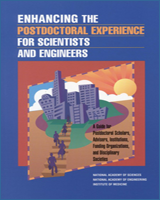
Enhancing the Postdoctoral Experience for Scientists and Engineers: A Guide for Postdoctoral Scholars, Advisers, Institutions, Funding Organizations, and Disciplinary Societies.
- Hardcopy Version at National Academies Press

3 Rights, Opportunities, and Responsibilities of the Postdoc
The fundamental purpose of a postdoctoral experience is to extend and deepen the postdoc’s scientific and technical abilities, either in the field of the doctorate or a different field. Because postdoctoral positions seldom require administrative or teaching duties, they provide unique opportunity for researchers to demonstrate originality, creativity, and productivity that will be primary contributors to their future success in research. In particular, postdocs have the opportunity to produce the lead or single author publications by whose quantity and quality they will be judged as they compete for their next professional position.
Responsibility for the postdoctoral experience is shared among the postdoc, adviser, institution, funding organization, and disciplinary societies. This chapter examines the rights, opportunities, and responsibilities of the postdoc, and the importance of postdoctoral activities in shaping a career.
- Rights of a Postdoc
When an adviser and institution accept a postdoc, that postdoc rightfully expects an experience that provides good training, education, and career enhancement. The following topics were discussed extensively by postdocs and advisers during COSEPUP’s focus groups and workshop in an attempt to determine “best practices.”
Clear terms of appointment
Practice description defining the postdoctoral position.
- The appointee has received a PhD or doctorate equivalent. 2
- The appointment is viewed as an apprenticeship—a training or transitional period preparatory to a long-term academic, industrial, governmental, or other full-time research career.
- The appointment involves full-time research or scholarship. 3
- The appointment is temporary.
- The appointee is expected to publish (and receive credit for) the results of research or other activities performed during the period of the appointment.
This definition draws on criteria suggested by the American Association of Universities (AAU, Committee on Postdoctoral Education, Report and Recommendations , Washington, DC, March 31, 1998) and by Vanderbilt University School of Medicine (presented by Roger Chalkey at COSEPUP’s December 1999 workshop on the postdoctoral experience).
E.g., the MD, DDS, DVM, or other professional degrees in science and engineering.
However, in some disciplines, such as mathematics, the postdoctoral experience commonly includes a major teaching element. Also, some postdoctoral experiences, such as the National Academies’ and AAAS Fellowships, introduce the postdoc to the field of public policy.
Once the postdoc is accepted, an appointment letter or contract should state the basic contractual framework, especially the stipend level, source of stipend, what benefits will or will not be provided (particularly medical), and for how long the grant that supports the postdoc is to be funded. (See Box, Appointment Letters .)
Practice Description Preparing for a Postdoctoral Position
The factors that determine a “good” postdoctoral experience are as various as the personalities involved. But certain key steps deserve careful planning.
Choosing a field . Foremost is the selection of the research area. A postdoctoral research project should be more than an extension of thesis research; it should lead to new skills and a broader outlook. The postdoc should understand in advance what portion of the work is likely to be transportable to his or her next position.
Finding a postdoctoral position . Most postdocs in our focus groups 4 found their positions through personal contacts—advisers, friends, and contacts from professional meetings. Many simply approached potential advisers directly with their qualifications and objectives. Few postdocs are hired after a simple response to ads in journals and on web sites, but such sources provide valuable tips about which institutions are hiring in which fields.
Choosing an adviser . Both experienced postdocs and advisers suggest a thorough investigation before signing on. Some postdocs place paramount importance on the prestige of the principal investigator; others emphasize mentoring ability. A researcher of renown has great power to help—or hinder—a career; a newer assistant professor may offer more attention, responsibilities, and a substantial role in building up a lab. In either case, it is desirable to: 1) arrange a personal meeting and 2) talk with current and former postdocs who have worked with that investigator or organization.
Several hundred postdocs, faculty, advisers, administrators, and federal agency staff generously offered their opinions, critiques, and personal experiences at 39 focus groups held around the country.
Higher compensation
Best practices questions to ask in choosing an adviser.
- What are the adviser’s expectations of the postdoc?
- Will the adviser or the postdoc determine the research program?
- How many postdocs has this adviser had? Where did they go afterward?
- What do current and past lab members think about their experience?
- Will the adviser have time for mentoring? Or should I seek out other mentors?
- How many others (grad students, staff, postdocs) now work for this adviser?
- How many papers are being published? Where?
- What is the adviser’s policy on travel to meetings? Authorship? Ownership of ideas?
- Will I have practice in grant writing? Teaching/mentoring? Oral presentations? Review of manuscripts?
- Can I expect to take part of the project away after the postdoc?
- How long is financial support guaranteed? On what does renewal depend?
- Can I count on help in finding a position?
- Will the adviser have adequate research funds to support the proposed research?
Best Practices Appointment Letters
By tradition, postdocs have often been invited to work in a researcher’s lab with no more formality than a phone call or a handshake. Institutions are now beginning the good practice of issuing a formal letter of appointment that contains important contractual elements. The following model is offered to faculty by the postdoctoral office of one university:
Initial Letter of Appointment Outline
- Offer of postdoctoral position, with brief explanation of research project.
- Effective date of appointment, amount of stipend, source (and expiration date) of funding, and payroll information.
- Length of appointment (e.g., annual, with reappointment contingent on satisfactory performance).
- Leave policy.
- Copy of institutional policies attached with letter.
- Health insurance information and requirements and a description of the other benefits provided and (equally important for the postdoc to know) not provided.
- Intellectual property policy and agreement (enclosed for signature).
- Work eligibility requirements for US citizens and foreign nationals.
- Request for proof of doctoral degree (diploma or registrar statement).
- Request for candidate’s signature and return of letter by given date.
In return for working on the adviser’s project and with low monetary compensation, the postdoc has the right to expect good mentoring: oversight, feedback, sympathetic consultation, and periodic evaluations. There should be opportunities to present posters and papers and to learn manuscript writing and grant proposal writing. The mentor-trainee relationship can be crucial in helping the postdoc understand the context of his or her research and the requirements of a career focused on advanced research.
The postdoc shares responsibility for making this relationship work, and should understand the multiple demands on the adviser’s time. Like any personal relationship, the success of mentoring depends on good will and clear communication by both parties.
Practice Description Postdoctoral Stipends
Many postdocs, especially in the life sciences, are dissatisfied with the package of compensation and benefits they receive. Stipends vary by a factor of two or more among institutions, some of which have now begun to experiment with more equitable formulas.
The NIH , because of its dominance in providing support for postdocs, sets a widely used standard with its National Research Service Award (NRSA) scale, whose stipends begin at $26,256 and peak at $41,268 after seven or more years of experience. The scale is not intended to be a model for others, but it has become a de facto benchmark for many institutions and funding organizations.
Amid complaints that the NIH scale is unfairly low for experienced researchers, a number of institutions have designed their own standards. The University of Iowa , for example, decided to set the salaries of postdocs paid from research grants at twice the graduate student stipend, partly on the basis that postdocs spend all their time on research and a student spends half time. This computes to a salary in the mid-to-upper 30s, and is accompanied by full benefits (except retirement and vacation accrual, which the university plans to include in the future).
The National Institute of Standards and Technology has decided on the standard of the average salary of a land-grant-university assistant professor—now about $50,000—plus $5,500 in travel allowance.
Other institutions have adopted different formulas to supplement stipends that are deemed insufficient. At the Massachusetts Institute of Technology , for example, the physics department brings any postdoc stipend up to a minimum of $32,000 to compensate for the cost of living in the Boston area.
The compensation issue has evoked the suggestion that stipends should be increased even if it means reducing the number of postdocs. Officials at the University of Notre Dame adopted this strategy for graduate students at the beginning of the 1990s on the premise that “getting better students was more important than getting more students.” They increased the undergraduate GPA and total general GRE scores of the graduate students accepted. It was not clear that the strategy reduced the number of applicants accepted, between 1992 and 1999.
It is clear that postdoc compensation is low relative to the compensation of others with comparable skills and education. Postdocs are also entitled to non-monetary forms of compensation, specifically, to guidance in furthering research and other career skills and in advancing a professional career. For many, these forms of compensation are necessary to a successful postdoctoral experience. Those who do not feel the need for guidance (e.g., people who have been post-docs for five or more years and function essentially independently believe they are already “junior colleagues” of their adviser) often express the greatest displeasure over low stipend levels. (For further discussion of compensation issues, see Levels of Funding in Chapter 6 .)
COSEPUP Survey Results Does Your Organization Establish Minimum and/or Maximum Stipend Levels for Postdocs? If “Yes,” Please Specify Dollar Values. If “No,” Why Not?
Slightly more than half the organizations answered “yes.” Among universities, minimum levels tended to follow the NIH scale (now $26,256 for the first year); a few were lower. At national laboratories and facilities, most salaries began in the $40,000–50,000 range, with lows between $30,000 and $40,000 and a high of $80,000. Some national labs offered “add-on” amounts for “critical skills,” from $2,000 to $10,000. In industry, stipends beginning between $30,000 and $40,000 were common.
For “no” responses, institutions listed a range of ambiguities that inhibited the establishment of uniform stipend levels, including the wide variety of job titles and policy differences among departments, schools, or laboratories. Several institutions reported that policies were being prepared.
Multiple mentors
Some advisers who are excellent researchers may have insufficient time or ability to be good mentors. For this reason, several institutions encourage and even require postdocs to seek out multiple mentors or “mentoring committees.” The purpose of such committees is not to alter the authority of the PI, but to provide additional perspective and feedback from experienced colleagues. In a broader sense, postdocs can benefit from a diverse community of mentors (representing a range of skills and experience), ranging from peers in the lab to senior investigators in other fields.
Health benefits
Postdocs who are categorized as employees usually have access to insurance and other institutional benefits, such as dental insurance, short-term leave, life insurance, and retirement funds. Problems arise, however, among postdocs who bring their own fellowships, which may or may not include health coverage. This problem is especially troublesome for postdocs with families. Some institutions are setting an example by requiring and/or providing universal access to health insurance for postdocs.
Support in planning a career and finding a job
A postdoc who focuses solely on research may neglect essential steps of career planning. These include acquiring technical and careers skills that will be needed for desired positions, preparing for the next grant or position, publishing results, and building a professional network. Both the adviser and the institution should be sources of assistance in all these areas.
Best Practices Is a ‘Hot Lab’ the Best Lab?
Many graduate students and pre-graduate students assume that a “hot topic” lab is the best lab for postdoctoral work, but hot researchers may or may not provide good mentoring. An indication of effective mentoring may be found in the published record. One mentor advises looking back 10 to 20 years in a major literature database (e.g., Medline for postdocs on the life sciences) and selecting first authors of excellent papers from the lab of the proposed mentor (in most biomedical labs the mentor is the last author). Then fast-forward to the most recent three years and check for citations from the first list of names, especially as first or last author. If the collective first authors of earlier years are producing first-rate, interesting papers today, their previous training may have played an important part. This method is helpful only for evaluating senior mentors; however, for more junior mentors, the best information may come from current and former lab members.
- Opportunities of Postdoctoral Experience
A postdoc is emerging from the world of students to the broader world of professional research. A postdoctoral apprenticeship offers numerous opportunities to make this transition.
Independence
In graduate school, it is common (though not universally so) for students to work within the structure of the adviser’s research program. Many, but not all postdocs work toward greater autonomy and self-direction. Especially in universities and smaller labs outside academia, the goal of the postdoctoral experience may be to become an independent researcher capable of every step of professional research: designing research programs, publishing as senior author, finding grant support for research, and supervising others. These postdocs may have the responsibility for a clearly defined program and work under the supervision of a single adviser. In other kinds of facilities, especially those of industry and government, postdocs may work in teams of dozens or even several hundred researchers. The goal here may not be to achieve independence in a literal sense, but to mature into interactive and effective team members.
Best Source of Job Advice for Postdoctorates: Biochemistry & Mathematics. Source: Science , 1999, Vol. 285, pp. 1518.
Professional meetings
Most postdocs are aware of the importance of attending professional meetings to network, to present the results of research, and to gain experience in the larger research community. Many postdocs, however, must depend for travel funds on their advisers, whose travel policies vary. Some advisers encourage postdocs to attend meetings; others are reluctant to provide travel funds or allow time for extramural activities. Most postdocs feel the need to attend a minimum of one national meeting a year, preferably two. NIH policy, for example, is to support the travel of its on-campus trainees to one meeting a year, with the opportunity for additional competitive travel awards.
Professional meetings provide excellent opportunities to meet colleagues and build a professional network of students, other postdocs, and senior researchers. Research communities are relatively small, and meeting one’s peers can have lasting importance in finding collaborators for joint projects and contacts who may lead to rewarding employment. For example, the American Chemical Society estimates that 75–85 percent of its members find their jobs through networking. 8 Networking is a process where “more is better,” because meeting the right person is often a matter of serendipity.
- Responsibilities of a Postdoc
Postdocs have dual responsibilities: They must acquire the experiences they need to advance their careers and contribute to the program of their adviser through research accomplishments and interaction with others. Meeting both objectives is most likely when the adviser and postdoc communicate well and share similar expectations.
Career development
Postdocs (with the support of their advisers) must take ownership of their professional development. They need to learn not only the use of new research tools, but also ways to access special resources (such as national and international labs, centers, and multi-user facilities) and to keep up with the exploding streams of scientific communication.
The chances for a satisfying career can be increased through regular attendance at seminars, “getting known” through publications and meeting attendance, course work related to the area of research, integrating research into teaching experiences, developing possible collaborations, and developing skills in grant writing, reviewing, and oral and written communication. This “continuing education” can increase versatility and the chance for a rewarding career.
Intrinsic to “taking ownership” of a career is the element of taking control, of making and seizing opportunities. Timidity is not productive. Rather than waiting for invitations or instructions, successful postdocs ask for what they need, find their own new resources, meet new people, and solicit invitations to speak about their work. Developing a proactive mindset hastens the journey from student to professional. Not all advisers will welcome such initiatives. Their negative reactions can often be ameliorated by improved communication. In very difficult situations, the postdoc may need to consider an alternative situation.
Communicating
Good communication is an essential responsibility of both postdoc and adviser. Postdocs must clearly articulate the skills or training they need; advisers must clearly explain the needs of the laboratory or institution. These needs are most likely to be met if the postdoc steps forward with questions and if the adviser takes the time to listen. The postdoc must also communicate with the institution when help is required.
Contributing to the institution
The more postdocs are able to support the program of their adviser, the greater their value as team members. This can lead to a richer research experience, the respect of other group members, and support in developing a career in the future. In addition to getting the work done, good practices include keeping up with the latest advances, communicating them to others (including the adviser), and interacting regularly with others in both the group and the institution. Expectations about the postdoc’s contributions to the immediate community should be discussed carefully with the adviser and other lab members.
Planning for departure
Departure should not be delayed without good reason; the postdoc should neither be pressured to work indefinitely for the adviser, nor become overly comfortable in what should be a finite apprenticeship. If success in the research has proved elusive, the postdoc may be tempted to extend the stay, even indefinitely. This is not always a wise course. These and related issues should be discussed openly between postdoc and adviser from the beginning of the appointment: When should the planning process begin? What are the obligations of adviser and postdoc during and after leaving? Who inherits intellectual property rights—and the project itself—at the point of separation? A good rule of thumb is that the postdoc should begin a systematic job search at least a year before the end of his or her term. In reality, of course, timing is often determined by a job offer. But expectations about departure should be broached and discussed both upon arrival and during periodic evaluations.
- Shaping a Career
Academia, government, or the private sector?
The postdoctoral tradition began in universities. Many faculty still place the highest value on careers in academia, and assume that their postdocs will follow them there.
Nonacademic careers, however, are both more common and more acceptable than in the past. In some fields (such as biotechnology, computer science, and electrical engineering), postdocs value nonacademic positions as highly as academic jobs. Even so, many postdocs lack up-to-date information about research careers. In a 1999 survey of junior scientists at the University of California at Berkeley, 55 percent of respondents said their advisers encouraged them to pursue academic jobs, but fewer than 1 percent were advised to obtain positions in industry, government, or the non-profit sector. 9 A second 1999 survey of post-docs at Berkeley indicated that the number anticipating careers as “a professor with an emphasis on research” had dropped from 69 to 59 percent since the beginning of their postdoctoral experience. Instead, they cited the goals of “research in industry or national lab,” “consultant,” or “start their own company.” The leading reasons given for this change were “difficulty obtaining an academic job” and “money.” 10
The first Berkeley survey noted a wide difference in salaries for academic and nonacademic positions. About half of the cohort of biochemists who earned PhDs in 1982–1985 were working outside academia in 1995. This group earned almost $22,000 more in median annual total salary (including all income sources) than those employed in the academic sector, where the median salary was $57,000.
Developing career skills
Once a postdoc can see the outline of a career, gaining the right skills can be the key to expanding choices and finding the right position. These skills include such general abilities as clear writing, public speaking, leadership, teamwork, teaching, and mentoring. Given the competition for research positions, experience in teaching can be a strong advantage, especially for academic employment. Teaching experience also prepares the postdoc to communicate with people who work outside research or specialize in other fields.
Job hunting
The job search usually begins with help from the adviser, whose professional contacts are invaluable. However, postdocs should also develop their own network of contacts. One adviser suggests: “Let your presence be known in the field; be as public as you can. Departmental meetings, professional meetings—take advantage of those ten minutes in the sun.” The search must be tailored to the desired sector. For example, teaching experience will be more valuable in an academic setting; an industry employer is likely to require evidence of good communication and team skills.
Career expectations and reality
The 1998 AAU study reported that two-thirds of postdocs expected to find a tenure-track position at a research university, but that only about one-fourth of “recent postdocs” had done so. (An additional one-fourth went to another postdoc and 10 percent went to non-tenure-track (but somewhat more regular than a postdoc) positions such as fellow, research assistant, and adjunct instructor.) A 10-year follow-up study of 23 PhD graduates from the 1987 class of the M.D. Anderson Cancer Center in Houston showed similar results. Sixteen had permanent jobs, but only 10 were in research, with only five of those in tenure-track positions. Seven were still in postdoc positions a decade later. 11
Summary Points
Postdocs should have the opportunity to enhance their research experience, become independent researchers, become known through publishing and presenting their results at professional meetings, and advance their careers by networking with colleagues.
They have the right to clear terms of appointment, appropriate compensation and benefits, serious mentoring, and support in career planning and finding a regular position.
Postdocs have dual responsibilities: 1) to acquire the experiences they need to advance their careers, and 2) to contribute to the program through research accomplishments, personal growth, and interaction with others.
Postdocs share the responsibility with their adviser of communicating well regarding their progress and expectations.
In planning careers, more postdocs are finding opportunities in non-academic positions, but they must take the initiative to learn about acquiring the skills needed to qualify for entrance to growing employment areas, often outside their specialty.
Some women postdocs face special problems because of their gender, and have great difficulty in taking time to start a family.
Gaining the right skills can make a large difference in finding rewarding positions and expanding career choices. These include general abilities such as clear writing, public speaking, leadership, team-work, computer skills, teaching, and mentoring.
Profile A Successful Postdoctoral Experience
The elements of a successful postdoctoral appointment are as variable as the postdoctoral population. For one unabashedly upbeat postdoc on a laboratory fellowship (we’ll call her Sue), these elements included early preparation, supportive colleagues, a fascinating research topic, the opportunity to learn time management and self-reliance, and an effective—though somewhat distant—mentor.
- Early preparation : Even as a graduate student in geochemistry, Sue began building ties to the research group where she wanted to go as a postdoc. “To get the most out of an experience, you have to offer something. I did my graduate work in geochemistry; I wanted to work with a group in planetary physics, and I was able to show them that I had something to contribute. I began doing some projects with them while I was in graduate school, so the transition was relatively smooth. One of the best reasons to do a postdoc is to learn a new field, but it’s best to prepare the ground early.”
- Supportive colleagues : “I didn’t always know where I was going, but it was fairly easy to seek out good advice and constructive criticism both in my own institution and elsewhere. A big challenge, and a difference from graduate school, is that you’ve got to start putting together your own professional network of collaborators and friends with whom you’re going to be building your career. It’s a good habit to spend time every week meeting new people, networking, looking at people who are successful to see how they do it.”
- A topic of interest : “I loved my work, and this is one reason it was successful. I published 12 or 13 papers during three years as a postdoc, including one in Science. I got to work on a variety of problems without getting stuck in something too narrow. I was fortunate enough to have a great deal of freedom. I could follow my curiosity, and that allowed me to be very productive. I had the opportunity to propose my own research and get it funded.”
- Learning self-reliance : “I spun my wheels for the first few months, trying to figure out what to do first, but there were some advantages to that experience. If you’re going to be an independent researcher, sooner or later you’ve got to learn to fly the plane. When I was a grad student, I used to do all my own instrument work, because my time was cheap and there wasn’t anyone else to do it. When I became a postdoc, I was paid more and I had technical staff. I had a big adjustment in mindset about organizing better and making the wisest investments of my time.”
- Effective mentoring : “I saw my adviser several times a week. He wasn’t very involved with my research, but what he did was right for me. He was always supportive, gave me a long leash, and made sure I got to give talks at important conferences. He did this for all his postdocs—made sure that certain doors were unlocked. What you do with that advantage, once you go in that door, is your business. Again, you’re the one who’s going to fly the plane. In the end, I was fortunate enough to be hired by the same institution where I did my postdoc.”
Profile A Difficult Postdoctoral Experience
- Know when to cut your losses : In his first year, Joe tried several experimental approaches that failed to give results. His adviser was seldom in the lab to offer guidance, and Joe was slow to change direction. When he tried to consult other senior scientists, his adviser refused to allow it. “She felt this was interfering with her laboratory. In retrospect, I probably should have cut my losses and moved on. But there’s great pressure to keep going, to tough it out.”
- Understand your adviser’s policy on publication : In his third year, Joe had finally found a promising new direction, obtained results, and written them up for publication. His adviser, however, did not allow him to send out the paper because she felt it should be a “bigger story.” “The timing was critical for me. I had to be applying for jobs, and I had no publications. I was ready to have my work judged by my peers, and I was unable to do so. She finally rewrote and published the paper—after I’d left the lab.”
- Talk with former lab members before signing on : Joe talked only with current lab members, who he now knows are not in a position to be critical. Later he learned that he was the fifth postdoc to leave that particular lab without publications or jobs. “I should have talked with some former members, because they are freer to be honest. In a good training environment, postdocs are getting jobs and continuing their research. I might have saved myself a lot of difficulty.”
- Be clear about your agenda : He went on to do a second postdoc, with better—defined goals. “I needed publications, and I was frank about this with my second adviser. That lab was doing work in my field. I was offered a year’s support, and after that I knew I would be on my own. It was a fair offer, and clear. After nine months I was able to raise my own funding. I got my publications, the work came out well, and I entered the job market in good shape.”
NSF Issue Brief , December 2, 1998.
Numerous universities and some other institutions where COSEPUP held focus groups cited the NRSA scale in describing their mechanisms for setting postdoc stipends/salaries.
Nerad, M. and Cerny, J. “Postdoctoral patterns, career advancement, and problems,” Science , 1999, Vol. 285: pp. 1533–5. [ PubMed : 10477510 ]
As discussed in the Disciplinary Society Workshop sponsored by COSEPUP and held at the National Academy of Sciences, Washington, DC, January 10, 2000.
Nerad, M. and Cerny, J. PhDs–Ten Years Later , a national study funded by the Mellon Foundation, 1999, with selected analysis funded by the NSF. A report on the study has been published in Science (cited above).
McPheron, L. and Nerad, M. “Results of a Survey of Postdoctoral Appointees at UC Berkeley,” University of California at Berkeley ([email protected]), 1999.
Bunk, S. The Scientist , 1998, Vol.12, 1, p.1.
- Cite this Page National Academy of Sciences (US), National Academy of Engineering (US), Institute of Medicine (US), Committee on Science, Engineering, and Public Policy. Enhancing the Postdoctoral Experience for Scientists and Engineers: A Guide for Postdoctoral Scholars, Advisers, Institutions, Funding Organizations, and Disciplinary Societies. Washington (DC): National Academies Press (US); 2000. 3, Rights, Opportunities, and Responsibilities of the Postdoc.
- PDF version of this title (1.8M)
In this Page
Other titles in this collection.
- The National Academies Collection: Reports funded by National Institutes of Health
Recent Activity
- Rights, Opportunities, and Responsibilities of the Postdoc - Enhancing the Postd... Rights, Opportunities, and Responsibilities of the Postdoc - Enhancing the Postdoctoral Experience for Scientists and Engineers
Your browsing activity is empty.
Activity recording is turned off.
Turn recording back on
Connect with NLM
National Library of Medicine 8600 Rockville Pike Bethesda, MD 20894
Web Policies FOIA HHS Vulnerability Disclosure
Help Accessibility Careers
What is the difference between a postgraduate taught master’s and a postgraduate research master’s?
Pgce, mres, ma, msc or phd if you’re considering postgraduate study, use this guide to learn the difference between the kinds of postgraduate degrees on offer.

Richard Carruthers
Postgraduate courses come in many formats, ranging from vocational diplomas and certificates through to master’s and doctoral qualifications.
The two most common categories of postgraduate study are postgraduate taught (PGT) courses and postgraduate research (PGR) courses.
As you shop around potential postgraduate courses, you may also come across the PGCE, the LLM, the MRes, the MPhil and the PhD.
But what is the difference between all these acronyms?
Below is a guide explaining the differences between all the postgraduate degrees on offer, including how the application process varies between them.
Postgraduate taught (PGT) courses
Postgraduate taught courses are sometimes called level 7 qualifications and are one of the most common kinds of master’s degrees. When people refer to master’s courses, they usually mean a postgraduate taught course.
These courses are typically one year in duration if studied full-time, or two years if studying part-time.
The course will usually comprise several months of taught classes, much like undergraduate study, followed by an intensive independent research project for the final few months.
These courses have highly specialised content, making them great launchpads for careers where specialist knowledge is required. They are also often used as a stepping stone to more advanced research degrees.
What’s the difference between an MSc and an MA?
Postgraduate taught courses will usually lead to either an MSc or an MA qualification, depending on the subject you choose.
An MSc stands for a “master of science” and will focus on advancing a particular aspect of scientific research across the sciences, engineering, mathematics or a similar field that involves logic, scientific research or numbers.
An MA refers to a “master of arts”, and covers postgraduate taught degrees in the arts and humanities, such as literature, languages, history, cultural studies and some social sciences.
Applying for a postgraduate taught course
To apply for a postgraduate taught course, you will normally be asked to provide transcripts showing your academic performance on your undergraduate degree, a personal statement and a CV.
Your CV should focus on your educational achievements and interests and discuss any project work that shows you have the technical and academic skills needed to be a successful and independent postgraduate student.
Your personal statement can be tackled in a similar way to a cover letter, where you introduce yourself and convey your interest, enthusiasm and motivation to study the subject. It is also advisable to tailor your statement to each course you apply for and to explain your interest in some of the modules offered by that specific course.
It can also be beneficial to demonstrate some thought around where the course will lead you in the future, whether that’s into a new career or towards further study.
With postgraduate taught courses, you often won’t have to submit a research proposal for your research project as part of your application, as the taught elements of the course are meant to help inform your research proposal.
However, some postgraduate master’s courses may ask for you to submit a research proposal or at least have an idea of the topic you want to do your master’s dissertation on, even if this changes later.
Applying to master’s courses is generally done through a decentralised system, meaning you apply individually to each course and university. Each institution will set different entrance and application requirements. Check the exact requirements your course is looking for, and get in touch with the institution’s postgraduate admissions office with any questions.
What are MRes and MPhil degrees?
The MPhil stands for “master of philosophy”. The MRes course option, which is relatively new but has grown in popularity in recent years, stands for a “master of research”.
Much like postgraduate taught courses, both the MPhil and the MRes are technically classified as level 7 qualifications, and typically take one year to complete.
The main difference between an MRes or MPhil and a postgraduate taught course is that MRes and MPhil courses place much more focus on individual research, with as much as 60 per cent to 100 per cent of either degree consisting of a personal research project.
Given the heavy research focus, MRes and MPhil courses tend to contain fewer taught classes, but you will usually receive training in research techniques. As a result of the research focus, an MRes or an MPhil may help prepare a student for a doctoral programme (PGR) or a career that requires specific research skills and techniques.
Applying for an MRes or MPhil course is very similar to applying for a postgraduate taught course, but you may be asked to submit a research proposal as part of your application, so it’s important to have an idea of the kind of research project you would like to pursue.
Doctorate courses
Postgraduate research (PGR) courses are sometimes called level 8 qualifications and usually refer to doctorate courses.
These courses take about three to four years of full-time study to complete, but the exact duration of a doctorate course depends on whether you get involved in teaching, how long your research takes to complete and how long it takes you to write your doctorate thesis.
Successful PhD candidates are awarded doctoral qualifications such as doctor of philosophy (PhD) or doctor of engineering (EngD), depending on their field of research.
Research is the core component of a PhD programme, and you will be expected to produce original work on a specific subject topic, usually in the form of a thesis.
Doctorate qualifications are often a prerequisite for a career as a university academic, researcher or scientist in industry.
Applying for a doctorate (PhD) programme
To apply for a doctorate degree, you’ll need to submit a personal statement and a CV, both providing evidence of your academic experiences and passion for the subject.
Some PhD programmes will expect you to have already completed a postgraduate taught programme, but this isn’t always essential.
For a PhD, you may also be asked to submit a detailed research proposal outlining a specific research question you would like to address, the subject area you will work in, and the approach you would take to solving this.
Your proposal should demonstrate your current knowledge and discuss how your research idea could develop or challenge existing knowledge. You should also mention the potential significance of your research and why it would be a useful contribution to your chosen field.
Usually, you will be expected to apply individually to each PhD programme you’re interested in. Places will usually be dependent on your academic achievements, but also on the funding available in your chosen university department and whether the university can provide an appropriate supervisor.
If you’re considering applying for a PhD, it may be worth contacting academics individually to discuss whether they’d be interested in supervising you and asking about any funding opportunities.
Other postgraduate courses
Aside from the categories discussed above, there are many other classifications of master’s degrees, including postgraduate diplomas and certificates.
Often these lead to a vocational qualification that is used to gain entry to a specific profession.
Examples include the postgraduate certificate of education (PGCE), which leads to a career in teaching, the graduate diploma in law (GDL) or master of law (LLM), which opens the door to the legal professions, or the master of business administration (MBA), which is a common choice for business professionals looking to gain entry to C-suite positions.
You may also like

.css-185owts{overflow:hidden;max-height:54px;text-indent:0px;} Is it possible to do a three-year PhD as an international student?
Samiul Hossain

What is a PhD? Advice for PhD students

How do I choose a master's?
Charlie Pullen
Register free and enjoy extra benefits
Florida State University
FSU | The Graduate School
Main navigation Pulldown
The graduate school.
- Degrees and Programs
- Degree Programs
Doctoral Degree Programs
Contact your department for more information regarding admissions and general degree program requirements. search for your graduate representative below.

Art Education
Art Education , Arts Administration , Art Therapy , Museum Education and Visitor-Centered Curation
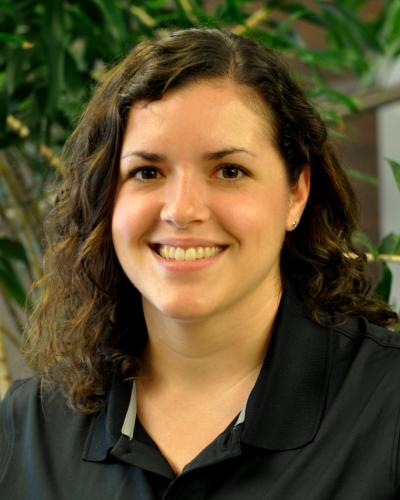
Art History
View Admissions Requirements

Biological Science
Cellular and Molecular Biology , Ecology and Evolutionary Biology , Neuroscience
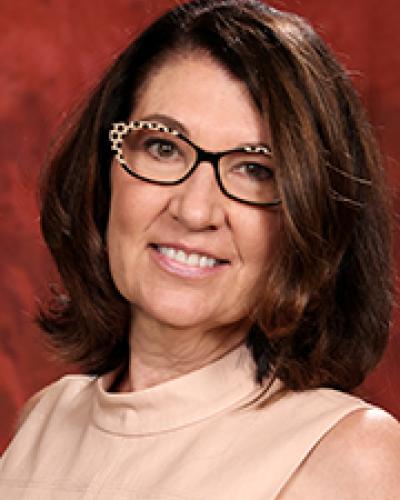
Biomedical Sciences

Accounting , Finance , Management Information Systems , Marketing , Organizational Behavior and Human Resources , Risk Management and Insurance , Strategy

Chemical and Biomedical Engineering

Civil Engineering

Communication

Communication Science and Disorders

Computational Science

Computer Science

Counseling Psychology and School Psychology

Criminology

Curriculum and Instruction
Early Childhood Education , Elementary Education , English Education , Foreign and Second Language Education , Mathematics Education , Reading Education & Language Arts , Science Education , Social Science Education , Special Education
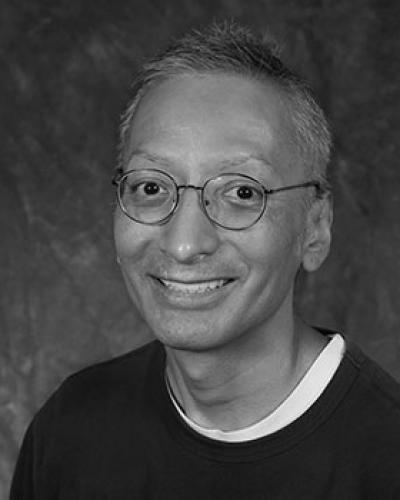
Earth, Ocean, and Atmospheric Sciences
Geology , Meteorology , Oceanography

Educational Leadership and Administration
Education Policy and Evaluation , Higher Education , History and Philosophy of Education , International and Multicultural Education

Educational Leadership and Administration (Online)

Educational Psychology and Learning Systems
Instructional Systems and Learning Technologies , Learning and Cognition , Measurement and Statistics

Electrical Engineering

Creative Writing , Literature, Media, and Culture , Rhetoric and Composition
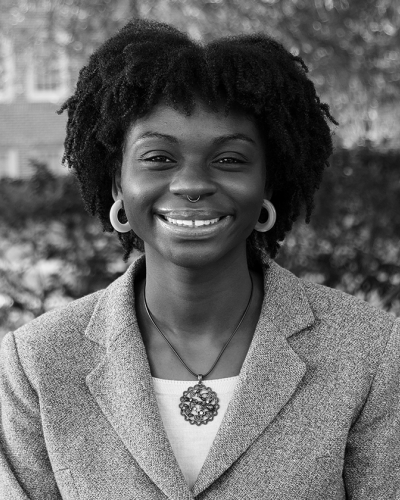
Exercise Physiology

Geophysical Fluid Dynamics

Human Development and Family Science
Human Development and Family Science , Marriage and Family Therapy

Industrial Engineering

Information

Juris Doctor

Materials Science

Mathematics

Mechanical Engineering

Medicine (M.D.)

Modern Languages
French , Spanish

Molecular Biophysics

View Admissions Homepage

Neuroscience
View Admissions Requirements , FAQ

Nurse Anesthesia

Acute Care Nurse Practitioner , Family Nurse Practitioner , Psychiatric Mental Health Nurse Practitioner , Health Systems Leadership (DNP) , Lifestyle Medicine (DNP)
Nutrition and Food Science

View Admissions FAQ

Political Science
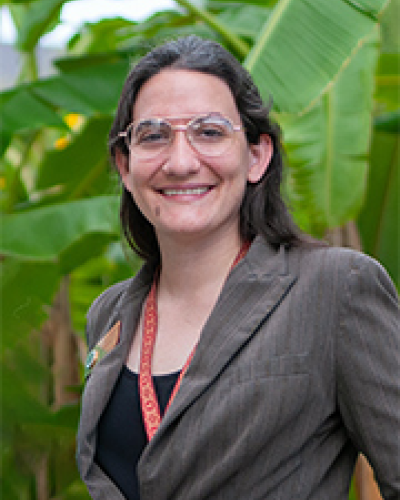
Clinical Psychology , Cognitive Psychology , Developmental Psychology , Social Psychology

Public Administration

Social Work

Admissions Deadlines and Requirements
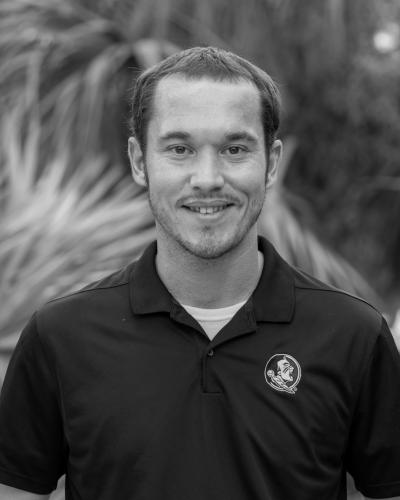
Sport Management

Sport Psychology

Urban and Regional Planning
RIT graduate pursues Ph.D. across time zones

Nastaran Nagshineh, center, defended her Ph.D. thesis at RIT in April. Faculty from RIT’s Rochester and Dubai campuses served on her thesis committee and include, from left to right, Kathleen Lamkin-Kennard, Steven Weinstein, Nathaniel Barlow, and David Kofke (a professor at the University at Buffalo). Mohamed Samaha participated remotely and appears on the video screen behind the group and alongside Nagshineh’s picture.
Nastaran Nagshineh is one of the first Ph.D. candidates to bridge RIT’s Rochester and Dubai campuses. Her accomplishment creates a path for future students at the university’s international campuses.
Nagshineh completed her Ph.D. in mathematical modeling while working full time as a mathematics lecturer at RIT Dubai in the United Arab Emirates, teaching as many as five classes a semester. She described her Ph.D. journey as “an exercise in perseverance” due to competing demands and long days. Rochester is eight hours behind Dubai, and the time difference meant many late-night classes and meetings.
“I saw this collaboration as an opportunity, rather than as a challenge, because my primary adviser, Dr. Steven Weinstein (RIT professor of chemical engineering), and my co-adviser, Dr. Mohamed Samaha (RIT Dubai associate professor of mechanical engineering), both have the same area of research interest,” she said. “They both worked toward my success.”
Nagshineh is one of 67 RIT Ph.D. students who defended their thesis this academic year and who will earn their doctorate. RIT awarded 63 Ph.D. degrees in 2023.
In 2020-2021, RIT’s Graduate School met and surpassed the university’s goal of conferring 50 Ph.D. degrees during an academic year. That number will continue to grow as students cycle through the seven new Ph.D. programs that RIT has added since 2017, said Diane Slusarski , dean of RIT’s Graduate School.
Meeting these goals puts RIT on a path toward achieving an “R1,” or research-intensive designation, from the Carnegie Classification of Institutions of Higher Learning. RIT is currently ranked as an R2 institution . Many factors go into changing a university’s status, including research investment and maintaining a three-year average of 70 Ph.D. degrees awarded per year, according to Slusarski.
“We have met the goals of the strategic plan, and now we look forward to contributing to the research innovation in the future,” Slusarski said. “We want to help the new programs thrive and win national research awards.”
RIT’s emphasis on high-level research is seen in Nagshineh’s Ph.D. work. She applies mathematical modeling to the field of fluid dynamics. Her research has been published in top-tier journals and has gained notice, said Weinstein, her thesis adviser.
Weinstein describes Nagshineh’s accomplishments as “a testament to a fantastic work ethic and commitment” and is inspirational to younger students at Rochester and Dubai.
“The collaboration between RIT Dubai/Rochester has continued,” he said. “Another paper was submitted a few weeks ago with Mohamed Samaha and Nate Barlow (RIT associate professor in the School of Mathematics and Statistics) as co-authors, as well as Cade Reinberger, a younger Ph.D. student in my research group.”
Mathematical modeling is one of RIT’s newer Ph.D. degree programs, and Nagshineh is among its earliest graduates. The program has doubled in size since it began accepting students in 2017, Slusarski said. This past fall, the mathematical modeling program had 35 students, with two graduating this year.
Altogether, RIT has 13 Ph.D. degree programs currently enrolling 438 students, with computing and information sciences accounting for the largest with 117 students. RIT’s other Ph.D. programs include astrophysical sciences and technology , biomedical and chemical engineering , business administration , color science , electrical and computer engineering, imaging science , mechanical and industrial engineering , microsystems engineering , and sustainability .
New programs in cognitive science and physics will launch in the fall.
The growth in RIT graduate education—with more than 3,000 master’s and doctoral students—reflects a demographic change in the student population, Slusarski said. “We have a higher percentage of women in the graduate programs than we have for RIT undergraduate programs.”
RIT’s graduate programs enroll 42 percent women, according to Christie Leone , assistant dean for the Graduate School.
Nagshineh, who also holds an MS in electrical engineering from RIT Dubai, welcomes her role as a mentor to other women students on both campuses.
“As a young woman in an Arabic country, the power of women is often underestimated and undervalued, and I hope to serve as a role model to female students, especially those that question their path,” Nagshineh said.
She plans to continue in her career as a professor and a researcher. “I would like to pursue a research program where I can advise my own students and teach them more deeply.”
Recommended News
May 20, 2024

RIT research examines spread and flow of soil contaminants
Understanding how contaminants in porous materials flow and are transported is key in the fields of industry, medicine, and environmental science. A two person team in the School of Physics and Astronomy recently had their research on the topic published and featured on the cover of Soft Matter , a journal by the Royal Society of Chemistry.
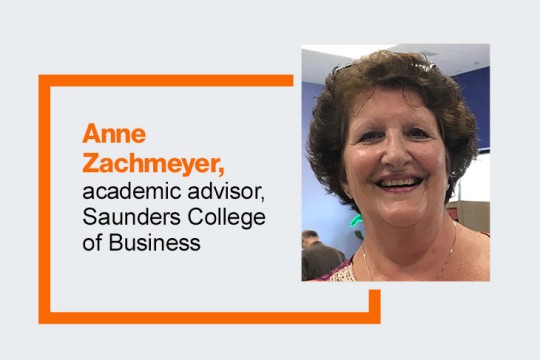
Anne Zachmeyer bids farewell to RIT after 37 years
Anne Zachmeyer, who is retiring in June after recently marking 37 years at the university, began her RIT career downtown in the former School of Applied Industrial Studies, then part of the College of Continuing Education (CCE).

Engineering Students Quit, But Retention Tactics Abound
The American Society of Mechanical Engineers talks to Risa Robinson, department head in the Department of Mechanical Engineering, about placing a focus on first-year retention strategies.

RIT’s ‘That Damn Goat’ comes to Nintendo Switch

QUICK LINKS
Degrees and programs powered by experience
Undergraduate

NEWS, DISCOVERY, AND ANALYSIS FROM AROUND THE WORLD

Explore our global campuses
Find unique opportunities for experience-powered learning and discovery.

Our hub for research and graduate education at the intersection of technology, security, and policy
Explore Arlington

Massachusetts
Established in 1898, our first campus is a comprehensive hub for learning, discovery, and urban engagement
Explore Boston

Home to world-class national security and defense research and a magnet for science-based startups
Explore Burlington

North Carolina
An engine for professional education in the life and health sciences
Explore Charlotte

Our hub in Europe, with undergraduate and postgraduate degrees—including a U.S./U.K. double degree—and world-leading network science research
Explore London

Graduate education and entrepreneurship programming to support the rapidly transforming finance and tech economies
Explore Miami

A vibrant center for coastal sustainability research and innovation
Explore Nahant

Our West Coast undergraduate campus offering unique entrepreneurship and social impact programming, and home to the Mills Institute
Explore Oakland

An engine for economic development with graduate degrees and research in technology, and home to the Roux Institute
Explore Portland

Graduate degrees and research focused on the region’s booming tech industry, and undergraduate summer programs
Explore Seattle
Graduate education for high-tech fields in the heart of California’s Big Tech region
Explore Silicon Valley

Preparing professionals to thrive in high-demand fields in North America’s third-largest tech market
Explore Toronto

Professional education aligned with British Columbia’s rising startup and high-tech ecosystem
Explore Vancouver

#LikeAHusky
Plenty of room to do your own thing. Many ways to feel like a Husky.

17 Division I teams, including varsity esports. 55 intramural sports, and 64 club teams. And a packed DogHouse on game nights. Go, Huskies!
Take Action
Quick Links
Campus Locations

Today, a vanguard of donors is driving Northeastern’s historic $1.3 billion fundraising campaign. With initiatives that span the globe, accelerating outcomes, we’re creating a better world right now. Learn more about our mission
Copyright 2024 Northeastern University

COMMENTS
Postdoctoral researcher. A postdoctoral fellow, postdoctoral researcher, or simply postdoc, is a person professionally conducting research after the completion of their doctoral studies (typically a PhD ). Postdocs most commonly, but not always, have a temporary academic appointment, sometimes in preparation for an academic faculty position.
While a Ph.D. and a doctorate award "Doctor" titles, a Ph.D. tends to be an academic degree while a doctorate is usually a professional degree. Ph.D.s often focus on extensive research and may lead to job titles such as research scientist, historian, philosopher, professor or engineer. Because a doctorate typically provides students with ...
The first and foremost difference between the two is that a PhD is "awarded" after defending a thesis (plus additional duties depending on the department). On the other hand, a PostDoc is a temporary working position that is assigned by some institution, whose completion does not require any defence. What people do or do not do, researchwise ...
The main difference between a doctorate and a PhD is their area of focus. A doctorate prioritizes applied knowledge and professional skills, while a PhD emphasizes academic research. Let's compare some more differences between a professional doctoral degree vs. PhD.
A postdoc is, in fact, a job, and as someone in a postdoc position, you will be considered an 'employee'. And just like any other job, the position will come with its own salary, responsibilities, training and employers. Most postdocs are awarded by universities or research institutes as temporary contracts. However, they can also be ...
In the hierarchy of U.S. college degrees, the highest level of education is known as a terminal degree, more commonly called a doctorate or doctoral degree. Very few people — 4.5 million out of the 258.3 million adults in the U.S., or less than 2% of the adult population — have earned the highest degree available.
In many fields, a postdoc is the de facto next step on the academic career path after earning a PhD (hence the name.) A postdoc is a temporary position that allows a PhD to continue their training as a researcher and gain skills and experience that will prepare them for their academic career. Most postdoc positions are at a university or in ...
The PhD, also known as the Doctor of Philosophy, is a research degree, which is one of the most common types of doctoral degrees, and is awarded to graduates in many different fields. For those asking, "Is a PhD higher than a doctorate?" the answer is simple: no. A PhD lies within the doctorate category, so one is not better than the other.
Definition of a PhD - A Doctor of Philosophy (commonly abbreviated to PhD, Ph.D or a DPhil) is a university research degree awarded from across a broad range of academic disciplines; in most countries, it is a terminal degree, i.e. the highest academic degree possible. PhDs differ from undergraduate and master's degrees in that PhDs are ...
The two most common types of graduate degrees are master's and doctoral degrees: A master's is a 1-2 year degree that can prepare you for a multitude of careers. A PhD, or doctoral degree, takes 3-7 years to complete (depending on the country) and prepares you for a career in academic research. A master's is also the necessary first ...
A postdoc is a temporary funded research position at a university or in industry taken on within a few years of completing a PhD. Commonly, these positions are externally funded by Research Councils, supporting individuals to work in specific institutions. Although postdoctoral researchers are considered members of staff, many will be assigned ...
A Ph.D. or Doctor of Philosophy, on the other hand, is a subcategory of a doctoral degree, it is much more distinct and clear-cut and is usually narrower in nature encompassing only humanities and scientific fields. In plain English, when someone says they are enrolling on a doctoral degree, it means they are doing a Ph.D. in a specific field.
A postdoc (or "post-doc," "postdoctoral," or "postdoctoral research") fellowship is a training-focused position available to people who have earned a doctorate. Postdoc positions usually act as a stepping-stone between the student experience and the full-time professional experience. For the postdoc appointee, a postdoc position offers in-depth ...
With a master's degree, that increases to $1,661. Doctoral degrees and professional degrees are close in earnings potential. If you have a doctoral degree, the median weekly earnings is $2,083, while the median weekly earnings, if you have a professional degree, is $2,080. *Data adapted from the BLS Current Population Survey . Next steps
The fundamental purpose of a postdoctoral experience is to extend and deepen the postdoc's scientific and technical abilities, either in the field of the doctorate or a different field. Because postdoctoral positions seldom require administrative or teaching duties, they provide unique opportunity for researchers to demonstrate originality, creativity, and productivity that will be primary ...
A PhD is a Doctor of Philosophy. In answer to the question, "Is a PhD a doctor," the answer is yes. Both a PhD and a professional doctorate like an EdD earn you the title of "doctor.". But there are differences between the types of doctoral degrees. Learn more about a PhD vs. a professional doctorate below.
While both a PhD and a doctorate are doctoral-level degrees, there are some key differences between the two. One of the main differences is that a PhD is typically an academic degree, while a doctorate can be either academic or professional. Additionally, a PhD is highly theoretical and research-focused, while a professional doctorate is ...
The primary difference between PhD and professional doctorate programs is the type of research conducted in the independent research phase. PhD students are expected to create, expand, and contribute to knowledge, research, and theory in their field of study. This kind of discovery is often called original research.
It is also known as a PhD or Doctor of Philosophy degree. The doctoral degree is awarded in various fields, including medicine, law, engineering, education, and social sciences, among others. Define Postdoctoral. Postdoctoral refers to a period of advanced research or training that a person undertakes after completing their doctoral degree.
16. It's not a second PhD, because the length of the postdoc is typically much shorter than that of a PhD. The function of a postdoc is sort of an "advanced apprenticeship," where you may choose your advisor (who should be different from your graduate advisor!) according to several possible goals, including: Learning a new technique or field.
Doctorate qualifications are often a prerequisite for a career as a university academic, researcher or scientist in industry. Applying for a doctorate (PhD) programme. To apply for a doctorate degree, you'll need to submit a personal statement and a CV, both providing evidence of your academic experiences and passion for the subject.
After the doctorate degree, a second training period is available for students in fields such as life sciences, called a postdoctoral fellowship. Funding. In general, there is less funding available to students admitted to master's degrees than for students admitted to Ph.D. or other doctoral degrees.
In the USA An undergraduate student is one who's working towards a bachelors degree; typically a graduate student is one who has a bachelors degree and is either working on a Masters are higher level degree; a postgraduate degree level refers to someone who has earned a masters degree and is in route to a higher level degree; a postdoctoral ...
A Doctor of Philosophy (PhD) is a more traditional, research-focused doctoral degree that delves deep into a subfield or specialization within the business, like marketing, finance, organizational behavior, etc. PhD dissertations require conducting original research that contributes new knowledge or theories to the field.
Doctoral Degree Programs ... your department for more information regarding admissions and general degree program requirements. Search for your graduate representative below! Request More Info. Legacy Sort. 1. Legacy Priority. 0
Indeed, what universities seem to have forgotten is that they have more than a bit of a say in how these forces play out. There is a vibrant and prosperous future for M.A. and Ph.D. education not in radical transformation but in reconciliation—reconciliation between academic and applied domains of knowledge production, and in enabling lives as researchers and scholars both within the academy ...
Nagshineh is one of 67 RIT Ph.D. students who defended their thesis this academic year and who will earn their doctorate. RIT awarded 63 Ph.D. degrees in 2023. In 2020-2021, RIT's Graduate School met and surpassed the university's goal of conferring 50 Ph.D. degrees during an academic year.
If you're a rising or mid-career education professional, you may have considered earning a doctorate in education, whether it's a Ph.D. or a Doctor of Education (Ed.D.). A doctoral degree can ...
PhD Programs; Undergraduate Research; Health; Sustainability; Security; Entrepreneurship; ... with undergraduate and postgraduate degrees—including a U.S./U.K. double degree—and world-leading network science research. Explore London . ... Graduate degrees and research focused on the region's booming tech industry, and undergraduate summer ...